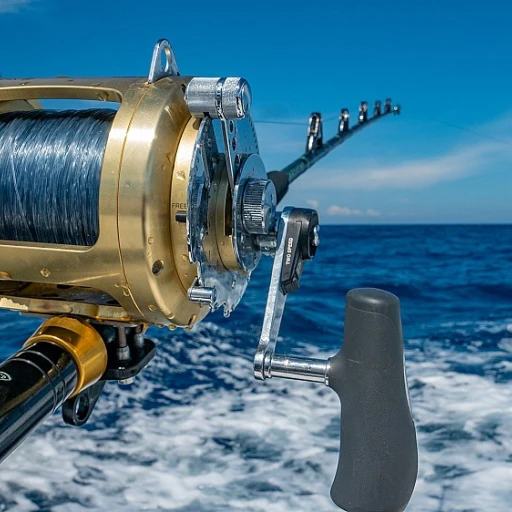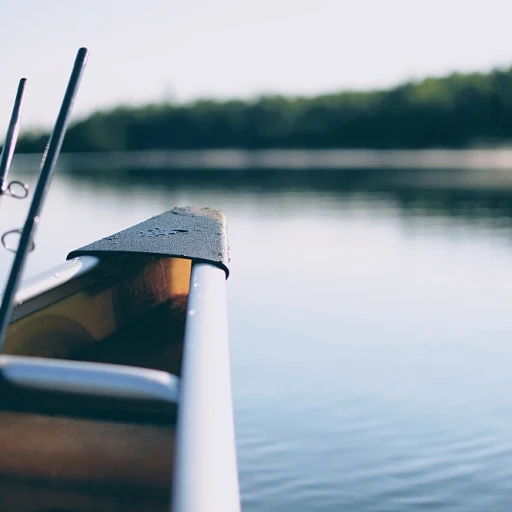
Understanding crappie species: black and white crappies
Distinguishing between black and white crappies
Crappies, known for their elusive charm and delectable taste, are often the highlight for many anglers. However, distinguishing between black and white crappies is essential for any fishing enthusiast eyeing that record crappie catch.
Black crappie (Pomoxis nigromaculatus) are identifiable by their dark, mottled pattern and seven to eight spines on their dorsal fin. They're usually found in clearer, deeper waters, preferring abundant vegetation to camouflage. They weigh more on average, with many exceeding 2 pounds. The world record black crappie, currently held by Lionel “Jam” Ferguson, was a whopping 5 pounds 7 ounces catch in Tennessee's Richeison Pond.
White crappie (Pomoxis annularis) showcase a lighter, vertical bar pattern and have only six dorsal spines. They thrive in murkier waters and are more adaptable to different water conditions. These fish typically grow larger length-wise but weigh slightly less than their black counterparts. The record-holder for white crappie is an impressive 5-pound 3-ounce fish caught by Fred Bright in Mississippi's Enid Lake.
Both species have distinct spawning habits and feeding preferences. Black crappie are more carnivorous, feeding on insects, minnows, and crustaceans. White crappie, on the other hand, have a more varied diet, including plankton.
For more about record-breaking catches, you might enjoy reading this deep dive into record-breaking catches.
Historical record crappies: the biggest catches ever
Legendary hauls: a glance at the largest crappies recorded
From shimmering lakes to serene rivers, record crappies have created some momentous occasions for anglers. Let’s reminisce about some of these behemoth catches that have set benchmarks. Understanding these colossal achievements, their context, and the heroes behind them can provide insights and inspire anglers to aim high.
The biggest black crappie: Lionel “Jam” Ferguson’s landmark
On May 15, 2018, Lionel “Jam” Ferguson from Philadelphia, Tennessee, etched his name in the annals of fishing history. He snagged a staggering 5 lb 7 oz black crappie from Richeison Pond, a catch verified by the International Game Fish Association (IGFA) as the world record. This behemoth not only broke the Tennessee state record but also surpassed the previously held world record by weighing 10 ounces more.
“It was unreal. I knew I had something special when I felt the weight,” Ferguson recalled. His unforgettable experience has been shared far and wide, setting a new standard for black crappie enthusiasts.
The white crappie titans: from Missouri to Mississippi
When it comes to white crappies, the records are nothing short of spectacular. Missouri's Jack Kilgore holds the state’s record with a 5 lb 0 oz white crappie documented at a private pond in 1967. This catch still stands unbroken in the state, a testament to Kilgore’s prowess.
Another monumental catch was Donivan Echols’ 5 lb 3 oz white crappie lifted from Enid Reservoir, Mississippi in 1957. This record remains at the pinnacle, showing the potential of the Magnolia State’s waters. Anglers from across the country respect the historical significance and the sheer magnitude of such catches.
West Virginia’s shining stars: tales of impressive catches
Woodrum Lake produced a marvel when Dwight Priestley landed a black crappie measuring 18 inches and weighing 4.75 lbs. But the record’s not one-sided; West Virginia also boasts spectacular white crappie catches. In these tranquil waters, stories of impressive hauls are passed down, solidifying the lake’s legendary status.
California: a hotspot for record-breaking crappies
Echoing the grandeur of black crappie records, Californian David Burruss joined the elite club with his 4 lb 8 oz catch in Clear Lake. Anglers often regard California's aquatic bounty as prime grounds for crappie fishing, given its conducive environment and well-preserved habitats.
Setting the bar in Arkansas and Alabama: Ezekial Shaw’s feat
For Arkansas, the black crappie record was set by Ezekial Shaw, who hauled in a whopping 4 lb 9 ounce specimen from Lake Hogue. This milestone has cemented Shaw’s name among the elite.
Not to be outdone, Alabama’s crappie fishing records reflect similarly impressive catches, with anglers recounting tales of big hauls, contributing to the state’s storied fishing legacy.
For more legendary fishing achievements and the grand tales behind them, check out the biggest fish ever caught.
State records: where the giants are caught
Record crappies across the United States
Crappie fishing enthusiasts always dream about landing that monster crappie, and knowing where this has historically happened can fuel your efforts. Throughout the U.S., various states boast impressive records that can serve as inspiration.
Mississippi's giants at Arkabutla lake
The biggest catches often come from Mississippi, particularly notorious is Arkabutla Lake. The state record for white crappie, a whopping 5 lbs 3 oz, was caught here. This spot remains a famous destination for crappie anglers looking to break records. Craig Webb and Donivan Echols, both avid fishers, recount tales of their memorable trips to Arkabutla Lake in pursuit of this record fish.
West virginia's remarkable catches
West Virginia boasts some fantastic crappie fishing too. The record black crappie weighs 4 lbs 1.92 oz, caught by Dwight Priestley at Woodrum Lake. On the other hand, the state record white crappie weighed in at 2 lbs 4.03 oz. Both of these catches highlight the potential the state's waters hold.
California's diverse offerings
Heading west, California offers diverse opportunities. Lionel Jam Ferguson's 5lbs 3oz crappie record stands tall when discussing significant catches. His technique and keen sense for the right fishing spots have inspired many in the crappie fishing community.
Alabama's fishing grounds
In Alabama, David Burruss holds both the black and white crappie records. He caught his record black crappie, weighing 4 lbs 5 oz, at a local spot, reminding anglers that sometimes fishing success is about knowing your local grounds well.
To dig deeper into the specifics of how fish reproduce and grow to such sizes, read more here.
Tennessee's impressive records
Lindell Marker caught the state record black crappie in Tennessee, a fish weighing 4 lbs 8 oz. Tennessee's Woodrum Lake and other local spots have become renowned crappie angling venues thanks to these kinds of impressive catches.
Keeping records with IGFA and state departments
State record crappie are meticulously recorded by the local natural resources departments and verified by organizations such as the International Game Fish Association (IGFA). Their criteria ensure the authenticity and integrity of these records, preserving the legitimacy of angler accomplishments.
Tips from the pros: how to catch record crappies
Choose the right gear for catching record crappies
The right gear makes a world of difference when you're on the hunt for a record-breaking crappie. Let's dive right into the essentials. First off, selecting a light to medium light rod is key. Most pros swear by a 7-foot rod. According to Dwight Priestley, a renowned crappie angler, this length provides the perfect balance between sensitivity and casting distance.
Ideal baits and lures that can make history
When it comes to bait, live minnows are a staple. But don't overlook the magic of artificial lures. The triple threat grub, for instance, has earned its name for a reason. Lionel Jam Ferguson, who caught a record black crappie in Tennessee, often relies on these. It's not just about what you use, but how you use it. Jam emphasizes varying your retrieve speed to mimic injured prey.
Seasonal tips for landing the big ones
Seasonality is crucial. Spring is prime time for crappie fishing. As water temperatures rise, crappies, both white and black, head to shallow areas to spawn. Experts like Craig Webb suggest targeting depths of 3 to 6 feet during this period.
Reading the water and weather
Understanding water clarity and weather patterns can make or break your fishing trip. Clear lake waters demand more subtle presentations. Brett McMillion notes that in murky or stained waters, bolder colors in your lures can attract attention. Overcast days with a slight breeze are perfect—they break up the water's surface, making crappies less wary.
Strategic location targeting
Crappies love structure. Brush piles, fallen trees, and docks are hotspots. David Burruss advises using sonar technology to locate these structures underwater. In states like West Virginia, particularly in lakes like Woodrum Lake, these structures provide shelter and attract crappies.
Perfecting your presentation
Presentation is everything. A slight change in the angle or speed of your jig can trigger a bite. Donivan Echols says, “It's about finessing your lure through the water to make it appear as natural as possible.” Paying attention to how bait fish move in the wild can help mimic that behavior effectively.
Famous anglers and their record catches
Legendary anglers who broke records
In the crappie fishing community, some names resonate especially loudly due to their incredible achievements. One prominent figure is Lionel Jam Ferguson. Hailing from Tennessee, Ferguson set the world abuzz when he caught a massive 5-pound, 7-ounce black crappie in the year 2018, officially receiving recognition from the International Game Fish Association (IGFA) as the world record black crappie. This amazing feat was achieved at a private Tennessee pond, and it instantly skyrocketed Ferguson to fame in the fishing world.
Then there's David Burruss, another name etched into the annals of crappie fishing history. Burruss, a California native, made headlines in February 2021 when he caught a record-breaking 4-pound, 7-ounce white crappie at Clear Lake, California. What made Burruss's catch even more special was that he was using a Triple Threat Grub—an extremely popular choice among crappie anglers but not always expected to land a record catch.
Memorable state records and personal stories
Dwight Priestley from Missouri gave anglers something to talk about when he landed a 4-pound, 9-ounce black crappie at a local water body. Similarly, Jam Ferguson delighted West Virginia anglers with a staggering 4-pound black crappie from Woodrum Lake. Both anglers demonstrated how local knowledge and perseverance can lead to unforgettable catches.
Another noteworthy mention is Lettie Robertson, who set the Alabama state record for white crappie with a catch weighing 4 pounds, 9 ounces at Lake Harding in 2000. This remarkable feat was verified by the Alabama Department of Natural Resources, and it remains one of the most impressive catches to this day.
Anglers with unique techniques
It's not just the names or the sizes of the fish that make these stories compelling; it's also the techniques and tools used. Anglers like Ferguson often use lighter tackle than one might expect, with meticulous preparation and a deep understanding of crappie behavior.
Donivan Echols of Arkansas also exemplifies this. He holds the Arkansas record for a white crappie weighing 4 pounds, 7 ounces. Using a combination of live bait and precise casting methods, Echols's dedication to crappie fishing shines through, showing just how much skill and patience contribute to landing these giants.
A nod to unsung heroes
Even though the spotlight often shines brightest on names with extraordinary catches, countless anglers have made significant contributions to the sport. The likes of Jim Justice, Brett McMillion, Craig Webb, and Lindell Marker have all had their moments of glory by contributing invaluable knowledge and pushing the limits of crappie fishing, whether through record-breaking catches or advancing the sport's techniques.
It's the stories, the passion, and the individual triumphs that fuel the exhilarating world of crappie fishing, inspiring both seasoned anglers and newcomers alike to pursue their record-breaking dreams.
The role of the International Game Fish Association (IGFA)
Why the IGFA matters in crappie fishing
The International Game Fish Association (IGFA) stands as a critical pillar in the world of record crappies. This notable body establishes and maintains the standards for freshwater sport fishing accomplishments worldwide. Since its inception in 1939, the IGFA has enforced rigorous, scientifically grounded criteria for authenticating fishing records, setting the gold standard for crappie records.
Certifying record catches
The process of certifying a record crappie caught is meticulous, ensuring accuracy and reducing any attempts of false claims. The anglers must supply extensive documentation, including a clear photograph of the fish, the weight, and measurements. Further, an IGFA official or a certified weighmaster must verify the catch.
Significant catch stories
Take Lionel Jam Ferguson from Tennessee, who caught the all-time biggest black crappie at 5 pounds, 7 ounces in 2018. Ferguson's catch not only broke records but was a testament to efforts put into crappie fishing underlining the importance of the IGFA in maintaining accurate fishing records.
Impact on anglers
The certification of catches by the IGFA provides prestige and recognition to anglers. For instance, Dwight Priestley’s 4-pound, 9-ounce black crappie caught in Arkansas' Clear Lake got him immense recognition after being officially certified by the IGFA as the largest of its time.
These records also set benchmarks that inspire recreational crappie fishing, pushing anglers to new heights with their catch endeavors. With the IGFA's transparent certification process, records hold a high level of credibility among the fishing community.
Standardization and conservation
Beyond simply validating records, the IGFA’s rules aid in conservation efforts. Their strict adherence to ethical fishing practices ensures that fish populations remain healthy and thriving, benefiting both the ecosystem and the fishing community. The widespread practice of catch-and-release has been bolstered by IGFA's advocacy, which is crucial for the sustainability of crappie populations.
Moreover, state-based organizations, such as the West Virginia Department of Natural Resources, utilize IGFA standards to set and verify their own fishing records, reflecting the widespread influence of the IGFA.
To know more about other record-breaking giants, check out the biggest tuna ever caught.
Controversies and debates in crappie fishing records
Controversies and debates around record crappie catches
The world of record crappie fishing isn't without its share of disputes and heated discussions. From the legitimacy of catches to the methods used, controversies have shaped and sometimes muddled the perception of remarkable feats in this sport.
Questions of legitimacy and verification
One of the most common debates centers on the authenticity of record claims. Anglers like Lionel Jam Ferguson, who landed a 5 lbs 7 oz black crappie in Tennessee, and David Burruss, with his 4 lbs 8 oz white crappie caught in Clear Lake, California, have faced skepticism despite thorough verification processes maintained by the International Game Fish Association (IGFA). The rigors of these processes are designed to keep the records beyond reproach, but critics often raise concerns when substantial records are claimed.
Methods and fishing conditions
Another hotbed of controversy is the methods used to catch these record crappies. Techniques like live bait versus artificial lures, and whether the crappies were caught through standard fishing or advanced sonar technology, often stir debates in the angling community. Experts like Dwight Priestley advocate traditional methods and argue that advanced techniques, though legal, may give an unfair advantage.
Ethical considerations and conservation
Beyond the methods are ethical and conservation concerns. Some anglers argue that the pursuit of record sizes encourages overfishing or unethical practices. States like West Virginia, under leadership from officials like Jim Justice, have implemented strict regulations to maintain fish populations. The impact of these debates on fishing regulations cannot be overstated, highlighting the balancing act between preserving the sport and protecting natural resources.
Impact on local economies
The economic dimension also fuels debates. Record-breaking catches often draw anglers and tourists to specific spots, impacting local economies. Lakes like Woodrum Lake in West Virginia or reservoirs in Arkansas become hotspots, leading to discussions about resource allocation and environmental pressure. Experts like Brett McMillion and Craig Webb emphasize sustainable practices to ensure long-term benefits without exhausting fish populations.
Conclusion and ongoing debates
The journey towards recording groundbreaking crappie catches will always be intertwined with controversy. Yet, it's these very debates that push the sport toward innovation, stricter regulations, and perhaps a deeper appreciation for the art of crappie fishing. These discussions ensure that the legacy of anglers like Lindell Marker and Donivan Echols isn't just about the size of their catches but also the integrity and sustainability of the sport.
Future of crappie fishing: trends and predictions
Trends in crappie fishing technology and gear
The future of crappie fishing is looking bright as advancements in technology and gear continue to evolve. One notable trend is the increasing use of advanced fish-finding electronics. Devices like the Garmin Panoptix LiveScope and Humminbird MEGA Live Imaging give anglers real-time, high-definition views of what's happening underwater, making it easier to locate and catch record crappies.
Eco-friendly fishing practices
With a growing awareness of environmental issues, many anglers are adopting eco-friendly fishing practices. This includes using biodegradable lures and lines, practicing catch and release, and participating in clean-up efforts around fishing spots. Organizations like the Tennessee Wildlife Resources Agency and the California Department of Fish and Wildlife are actively promoting these practices to ensure sustainable fishing for future generations.
Changing patterns in crappie populations
Climate change and habitat alterations are leading to shifts in crappie populations. Warmer temperatures can affect spawning cycles and the availability of prey, potentially changing where and when anglers can find crappies. Researchers from the University of Missouri have noted that crappies in states like Missouri and Arkansas are moving into deeper waters during hotter months, altering traditional fishing techniques.
Evolution of bait and tackle
Innovations in bait and tackle continue to give anglers an edge in catching record-breaking crappies. The development of realistic soft plastic lures, like the Triple Threat Grub, has provided anglers with more effective tools for enticing larger fish. Companies like Bass Pro Shops regularly update their product lines to include the latest advancements in lure technology.
Influence of social media on crappie fishing
Social media platforms have revolutionized how anglers share their catches, learn new techniques, and connect with fellow enthusiasts. Facebook groups, YouTube channels, and Instagram accounts dedicated to crappie fishing are booming, allowing anglers to share tips and celebrate record catches instantly. Influential figures like Lionel Jam Ferguson, who caught the record black crappie, have gained large followings by sharing their expertise and experiences online.
Future prospects: emerging hotspots for record crappies
As anglers continue to push the boundaries, new hotspots for record crappies are emerging. States like Nebraska and Mississippi, known for their productive waters, are seeing an influx of anglers looking to break records. With continuous improvements in fishing techniques and equipment, waters like Woodrum Lake in West Virginia and Clear Lake in California are expected to see more record-breaking crappie catches in the future.
The landscape of crappie fishing is ever-evolving, and staying ahead of trends can help anglers enhance their chances of landing a record crappie. From technological advancements to environmental awareness, the future looks promising for crappie enthusiasts.
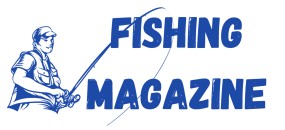
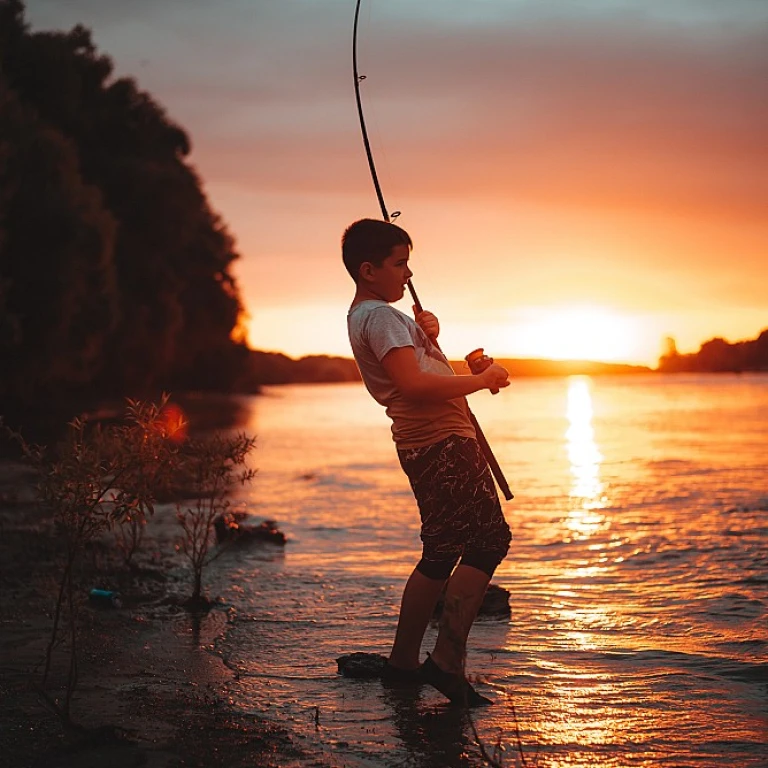
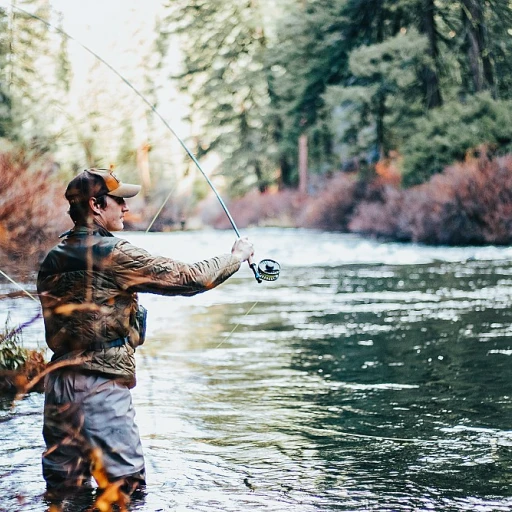
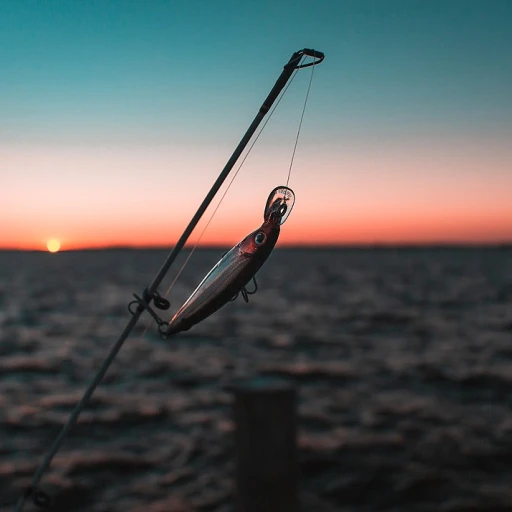
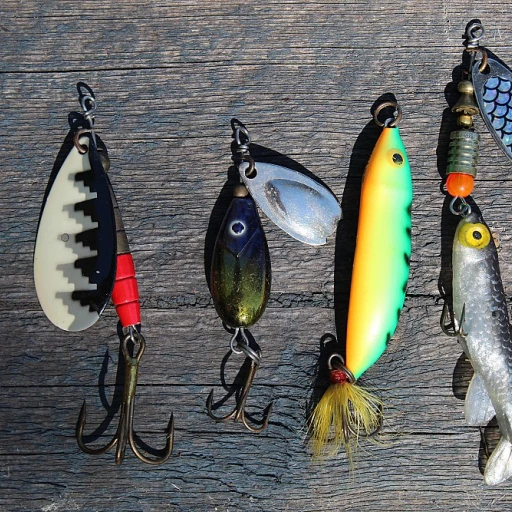
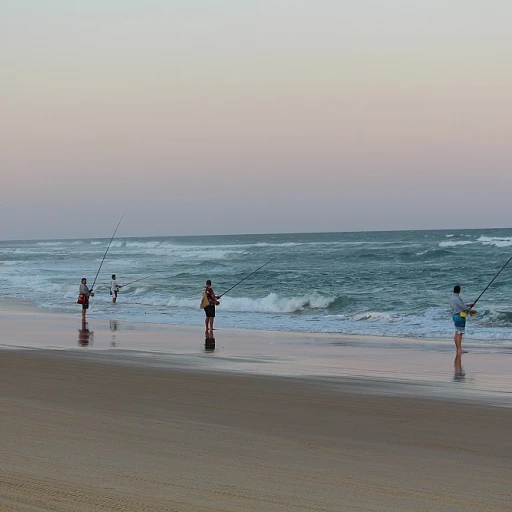
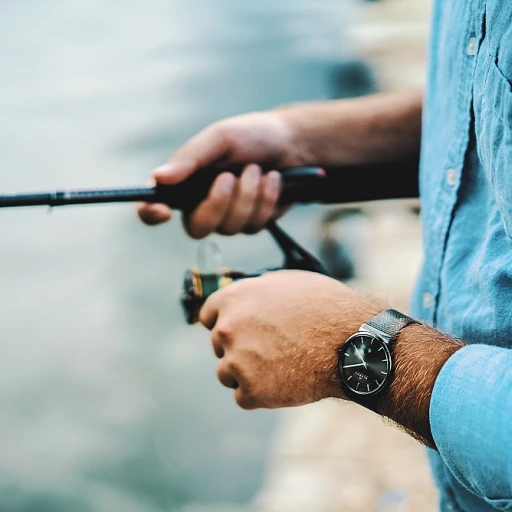
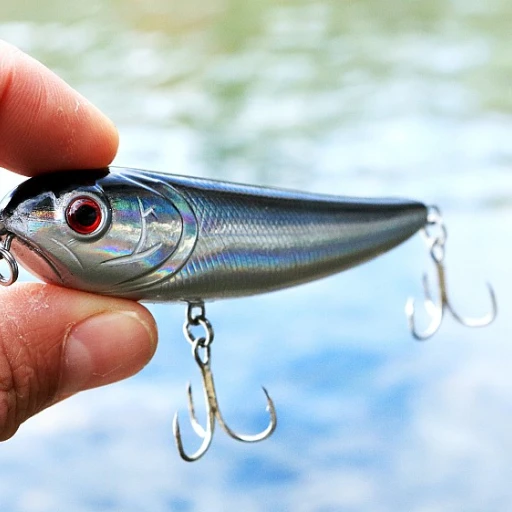
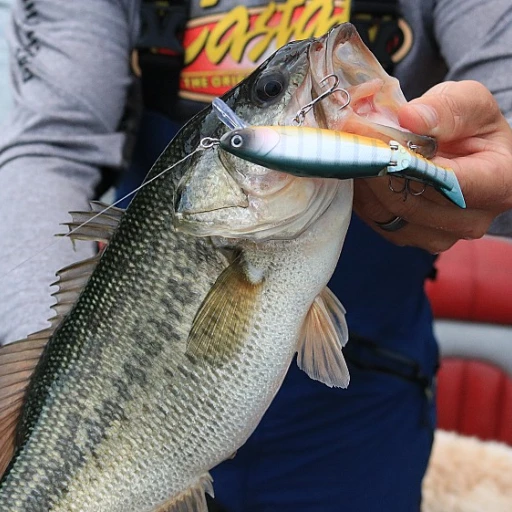
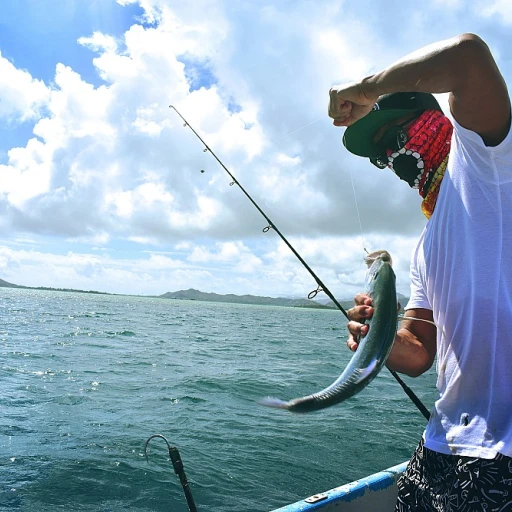
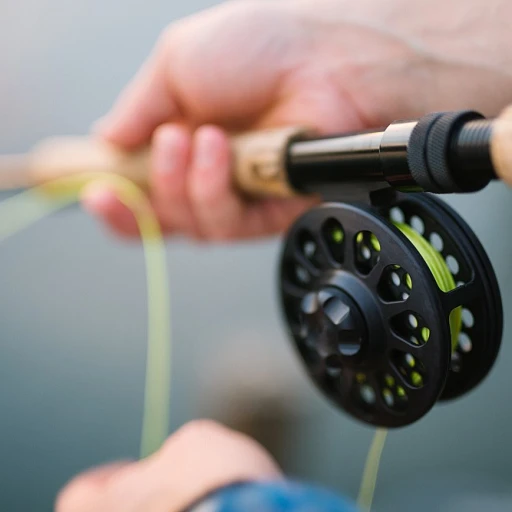
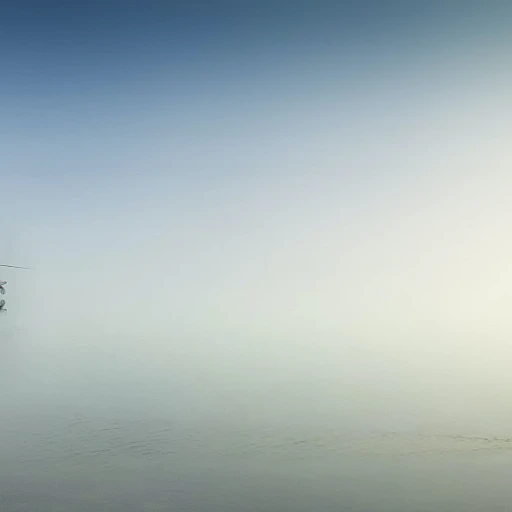
-large-teaser.webp)
